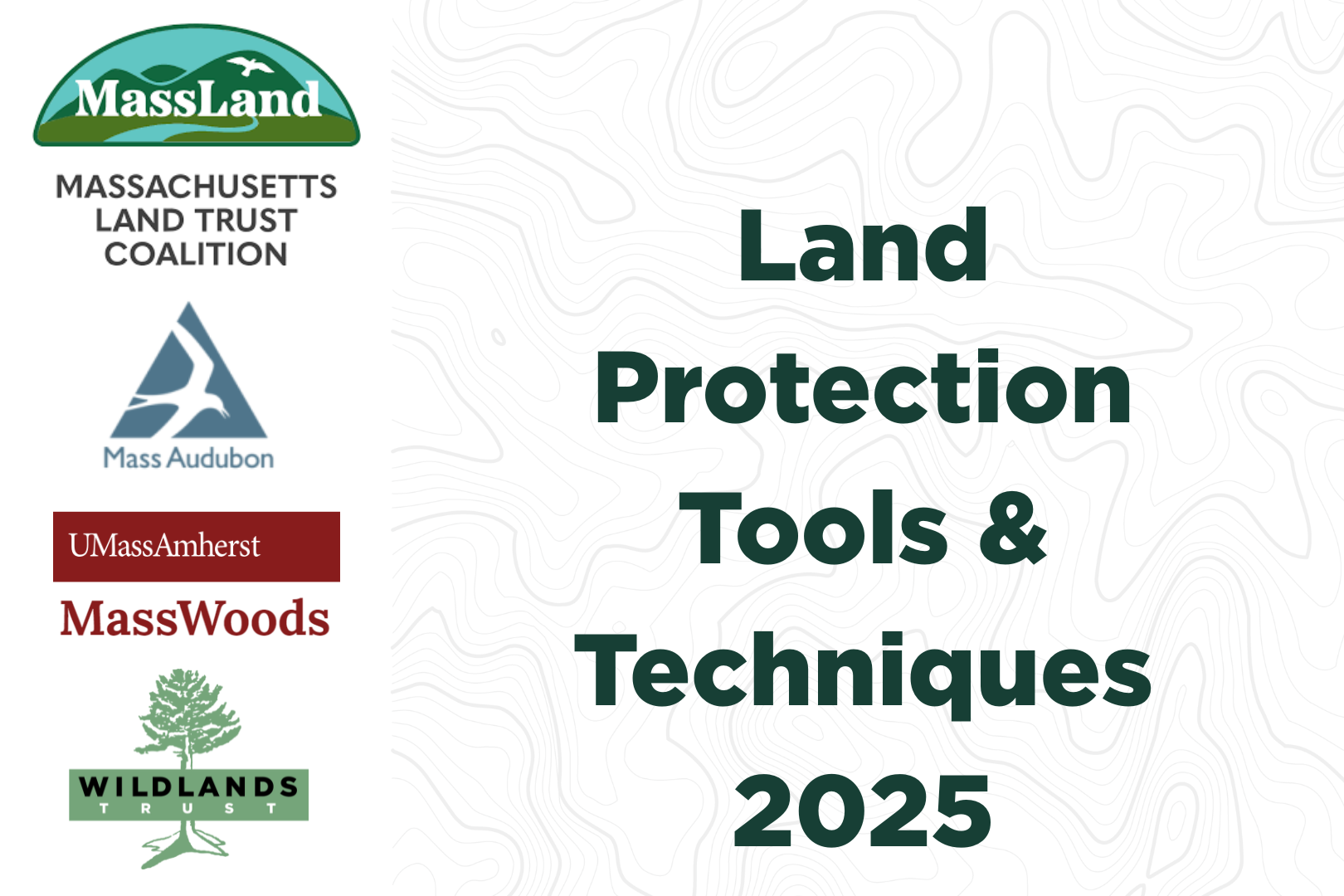This 10-week course (8-weeks online and 2 in-person gatherings) is targeted toward anyone at any career level (including upper-level college students, UMass affiliation not required) interested in learning the nuts and bolts of land conservation transactions for professional application. The goal of this course is to provide participants the skills, tools and understanding of land protection to better equip them for a career in land protection.
Dates:
Saturday, September 6, 10:00am - 3:30 pm. in-person at Arcadia Wildlife Sanctuary, Easthampton, MA
Thursdays, from September 11 - October 30, online 4:00 - 6:00 p.m.
Friday, November 7, 5:00 pm - Sunday, November 9, 12:00 pm in-person weekend retreat at the Wildlands Trust Stewardship Training Center, Plymouth, MA
Cost: $500. Scholarships are available.
Application deadline: Friday, May 16, 2025
Application form, which includes description of the application process.
What is Land Protection?
Land protection is a field that involves overseeing real estate transactions that place land into conservation status. Duties of those who work in the field include researching conservation priorities, outreach to landowners, negotiating donations or purchases of land or conservation easements, coordinating multiple due diligence tasks necessary to complete a deal, and working closely with public and private partners and funders.
Massachusetts has a long history of conservation and an abundance of government bodies and nonprofits that are active in the arena. But even as support and funding for land protection has increased dramatically in recent years, a shortage of trained professionals to carry out conservation transactions has slowed progress. Land conservation professionals employ a combination of skills that are not bundled into any conventional course of study. Despite an abundance of job opportunities in non-profit and government sectors, it is often challenging to find an entry into the field of conservation.
Upon completion of this course, participants will understand:
What organizations and entities are qualified to protect land and how;
Importance of personal relationships and social capital in land protection;
Strategies for prioritizing land for protection;
Specific legal tools and techniques that convey conservation status to land;
Basics of budgeting and fundraising for land projects, including forecasting stewardship costs;
How to ensure sound transactions (due diligence);
Importance of community engagement and communication;
How to manage and document a conservation transaction.
Course framework
This hybrid class kicks off with a day-long in-person event on Saturday, September 6th, followed by eight weekly Zoom meetings on Thursdays from 4 - 6 p.m. led by different conservation professionals from across Massachusetts, followed up with an in-person weekend retreat at The Wildlands Trust Stewardship Training Center in South Plymouth, MA beginning on Friday evening, November 7 and concluding midday Sunday, November 9.
Rob Warren, former Managing Director of Conservation for The Trustees of Reservations, and Christa Collins, former Director of Land Protection at Sudbury Valley Trustees, will serve as facilitators, and Paul Catanzaro, Extension Associate Professor at the University of Massachusetts Amherst, will be point-of-contact for UMass students.
Each Zoom meeting is two hours, with a short break in the middle, and may include breakout sessions in small groups. Participants who complete homework assignments and a final project and attend the weekend retreat will be eligible to receive a certificate of completion at the conclusion of the course. If space is available, others who may wish to audit the class may do so, but will not receive the certificate, and will not be required to complete assignments outside the webinars. Certificate recipients will be entitled to free admission at the 2026 Mass Land Conservation Conference.
Application form. Deadline: Friday, May 16, 2025
This course is offered in collaboration with the Massachusetts Land Trust Coalition, UMass Amherst MassWoods, Mass Audubon, and Wildlands Trust.

